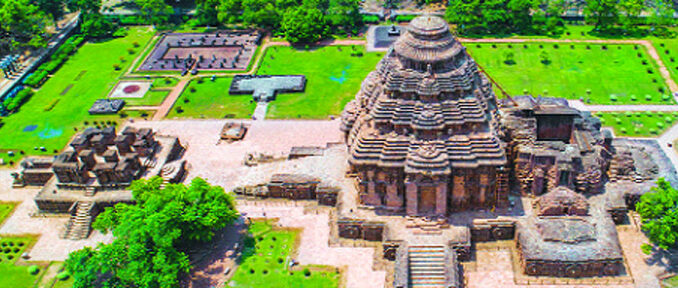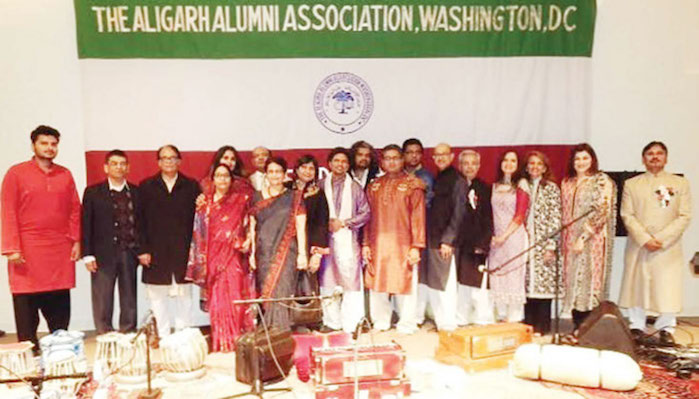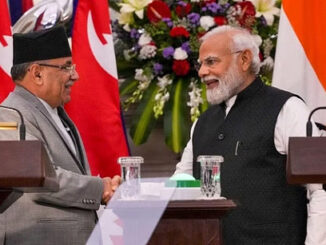
The 18th PBD Convention will be held from 8 – 10 January 2025 in Bhubaneswar, Odisha. The theme of the 18th PBD Convention is ‘Diaspora’s Contribution to a Viksit Bharat’
The Pravasi Bharatiya Divas (PBD), or Non-Resident Indian (NRI) Day, is celebrated annually on January 9th to honor the contributions of the Indian diaspora to the progress of India and to recognize their role in strengthening India’s ties with the global community. This day highlights the connection between the nation and its overseas citizens, celebrating the spirit of Indian identity, culture, and development worldwide.
The origins of Pravasi Bharatiya Divas are deeply rooted in the larger context of India’s relationship with its global diaspora. The history behind this celebration is tied to India’s historical emigration patterns, the struggles faced by early Indian migrants, and the efforts to bring attention to their contributions to both their host countries and India. This article explores the history, significance, and origins of Pravasi Bharatiya Divas, looking at how this day evolved, its relevance today, and the broader context of the Indian diaspora.
January 9 commemorates the return of Mahatma Gandhi from South Africa to India in 1915. To mark this day, the tradition of celebrating the Pravasi Bharatiya Divas (PBD) started in 2003. 1st PBD Convention was organised on 9 January 2003 to mark the contribution of the overseas Indian community to the development of India.
Since 2015, under a revised format, the PBD Convention has been organised once every 2 years.
The 17th Pravasi Bharatiya Divas Conventions have been organised till date. 17th PBD was held from 8 – 10 January 2023 in Indore, Madhya Pradesh. The theme of the 17th PBD Convention was “Diaspora: Reliable Partners for India’s Progress in Amrit Kaal”.
The 18th PBD Convention will be held from 8 – 10 January 2025 in Bhubaneswar, Odisha. The theme of the 18th PBD Convention is “Diaspora’s Contribution to a Viksit Bharat”.
Historical Background of Indian Emigration
Indian migration has a long history, dating back centuries. The earliest known waves of Indian emigration can be traced to the traders, scholars, and laborers who moved across the Indian Ocean to places like Southeast Asia, the Arabian Peninsula, Africa, and beyond. However, the large-scale movement of Indians to other parts of the world began during British colonial rule.
Indentured Labor System and Colonial Migration
The most significant migration wave in the 19th and early 20th centuries was due to the British colonial administration’s establishment of the indentured labor system. This system saw millions of Indians sent abroad to work on plantations in places like the Caribbean, Fiji, Mauritius, and South Africa. As indentured laborers, these individuals faced harsh conditions but contributed significantly to the economic development of their respective host countries.
In the early 20th century, a new wave of emigration occurred when skilled workers, professionals, and traders began to migrate to countries such as the United States, Canada, and the United Kingdom. This migration, especially after India gained independence in 1947, continued and saw an increase in the number of educated professionals from India seeking better opportunities abroad. Over time, the Indian diaspora grew into a global community that contributed to their host countries’ economies, cultural diversity, and political spheres.
The Role of the Indian Diaspora
Post-Independence
After India’s independence, the Indian government sought to establish strong ties with its citizens abroad. The global Indian diaspora, despite being physically distant, played a key role in shaping India’s political and economic landscape. They helped raise awareness about India’s development and played an instrumental role in remittances, which became one of the primary sources of foreign exchange for the country.
The Indian diaspora, spread across continents, helped build strong links between India and the world. They continued to make significant contributions to the development of their host countries, excelling in various fields like business, education, politics, and technology. Notable figures in the global Indian community include Dhirubhai Ambani, Sundar Pichai, Indra Nooyi, and many others who have not only succeeded in their respective fields but have also helped foster a better understanding of Indian culture and values globally.
The Birth of Pravasi Bharatiya Divas
The idea of celebrating the Indian diaspora on a national level was first proposed during the 2003 Pravasi Bharatiya Divas Convention. The idea to create a day to celebrate the Indian diaspora came from the efforts of the Indian government to recognize the contributions of NRIs and Persons of Indian Origin (PIOs).
The First PBD in 2003
The first Pravasi Bharatiya Divas was held in January 2003 in New Delhi, under the leadership of then-Prime Minister Atal Bihari Vajpayee. It was organized by the Ministry of Overseas Indian Affairs (MOIA), which was created in 2004 to specifically cater to the concerns of the Indian diaspora. The first convention aimed to provide a platform for members of the diaspora to interact with the Indian government, business leaders, and intellectuals. It was a way to acknowledge their contributions to India’s development and global standing.
The year 2003 also marked the centenary of the return of Mahatma Gandhi to India from South Africa, where he had first developed his ideas of non-violence and social justice. In 1915, Gandhi had returned to India after being part of the Indian diaspora for over two decades. His return signaled the start of a larger movement against British colonial rule and for Indian independence. As a result, January 9th was chosen as the official date to commemorate this event, making the day even more significant. Thus, Pravasi Bharatiya Divas, which was initially conceptualized as a way to recognize the Indian diaspora, was also designed to mark the legacy of Indian leaders like Gandhi and their connection to the global Indian community.
The Significance of January 9th
The choice of January 9th as the date for Pravasi Bharatiya Divas is deeply symbolic. This date is significant because it commemorates the return of Mahatma Gandhi to India from South Africa. Gandhi’s experiences in South Africa had a profound influence on his methods of resistance and his eventual leadership of the Indian freedom struggle.
Gandhi’s return to India from the diaspora marked the beginning of his pivotal role in the fight for independence. His return was seen as a powerful moment in Indian history, as it symbolized the strong link between India and its diaspora. By choosing this date, Pravasi Bharatiya Divas also honors the historical connection between the Indian diaspora and the Indian independence movement.
Objectives and Purpose of Pravasi Bharatiya Divas
The primary objective of Pravasi Bharatiya Divas is to acknowledge the contributions of NRIs and PIOs to India’s progress in various fields. The day provides a platform for the government of India to engage with the Indian diaspora, allowing them to discuss issues that affect their lives abroad and explore ways to contribute to India’s growth.
Key Objectives of PBD
– Recognition of the Contributions of NRIs and PIOs: Pravasi Bharatiya Divas serves as an occasion to acknowledge the positive impact that members of the Indian diaspora have had on their host countries and on India’s economy, culture, and political landscape.
– Strengthening Ties Between India and the Diaspora: It provides a venue for dialogue between the Indian government and the diaspora, discussing critical issues such as remittances, legal and social protections for emigrants, and the promotion of Indian culture abroad.
– Facilitating Collaboration: The event fosters collaboration between the Indian government, businesses, and overseas Indians, encouraging investment in India, promoting tourism, and strengthening the global reach of Indian companies.
– Cultural Exchange and Promotion: PBD encourages cultural exchange, making the world more aware of India’s rich heritage and traditions.
Subsequent Developments and the Global Outreach
After its inception, the Pravasi Bharatiya Divas became an annual event, attracting thousands of NRIs and PIOs from across the globe. The government organized a series of seminars, discussions, and networking sessions during PBD to facilitate knowledge exchange and foster collaborations.
In subsequent years, the event became increasingly inclusive, encompassing a wider range of issues important to the global Indian community, including topics related to education, healthcare, and the professional development of diaspora communities. PBD also saw the introduction of the Pravasi Bharatiya Samman Awards, which were presented to individuals and organizations that made significant contributions to India’s development or to the Indian diaspora.
These awards became a key feature of PBD, as they not only celebrated individual and collective achievements but also showcased the diverse and vibrant contributions of the Indian diaspora across various domains, including science, business, and social activism.
Challenges
While Pravasi Bharatiya Divas has been a platform for celebration and recognition, there have been criticisms regarding its effectiveness in addressing the concerns of the diaspora. Some members of the Indian community have raised issues about the lack of concrete action taken by the Indian government in relation to the challenges faced by NRIs, such as immigration issues, legal matters, and the protection of their rights in host countries. Furthermore, there have been concerns about the focus on celebratory events rather than practical steps toward improving the living conditions of the diaspora.
The Future of Pravasi Bharatiya Divas
As India continues to develop as a global power, the role of the diaspora becomes increasingly important. The Indian government has made substantial efforts to reach out to NRIs and PIOs, particularly in areas such as trade, investment, and diplomacy. With the Indian diaspora becoming more prominent in global politics and business, Pravasi Bharatiya Divas is likely to continue evolving into a more significant event that not only honors their contributions but also acts as a catalyst for further cooperation between India and the world.
The future of Pravasi Bharatiya Divas will likely see the development of new initiatives and programs that focus on strengthening the bonds between India and its diaspora. It may also serve as an opportunity to address the concerns of the global Indian community and promote a more inclusive, sustainable, and prosperous relationship.
Pravasi Bharatiya Divas is a unique celebration that honors the global Indian community, recognizing their contributions to both India and the countries they have made their homes. From its origins in 2003, the day has evolved into a significant event that fosters dialogue, promotes cultural exchange, and celebrates the diverse achievements of Indians abroad. Through its various initiatives, PBD continues to serve as a bridge between India and its diaspora, helping to shape a stronger, more connected global Indian community.





Be the first to comment